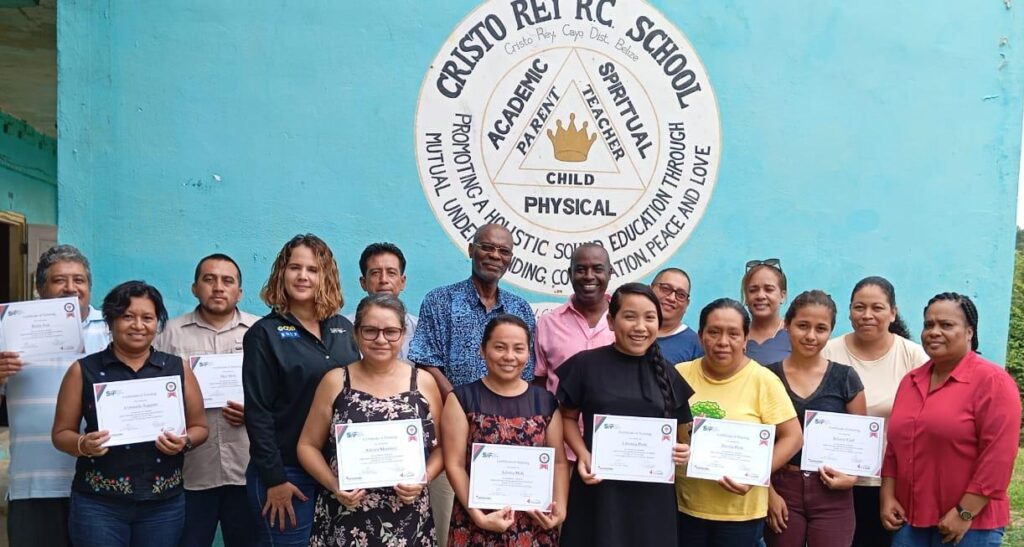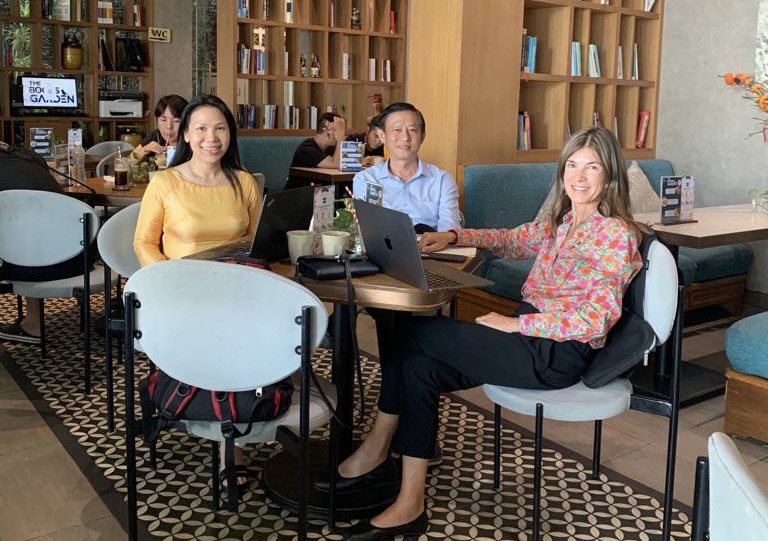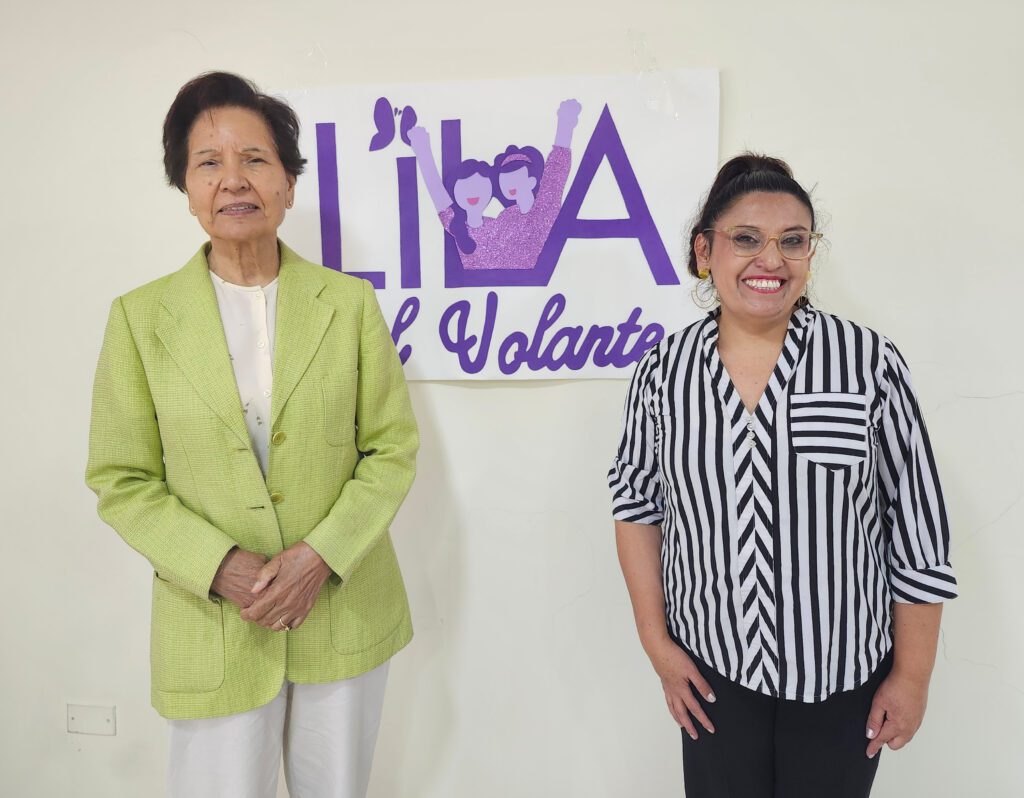Colombia’s Embera Chami Indigenous Community Recognized for Promoting Sustainability
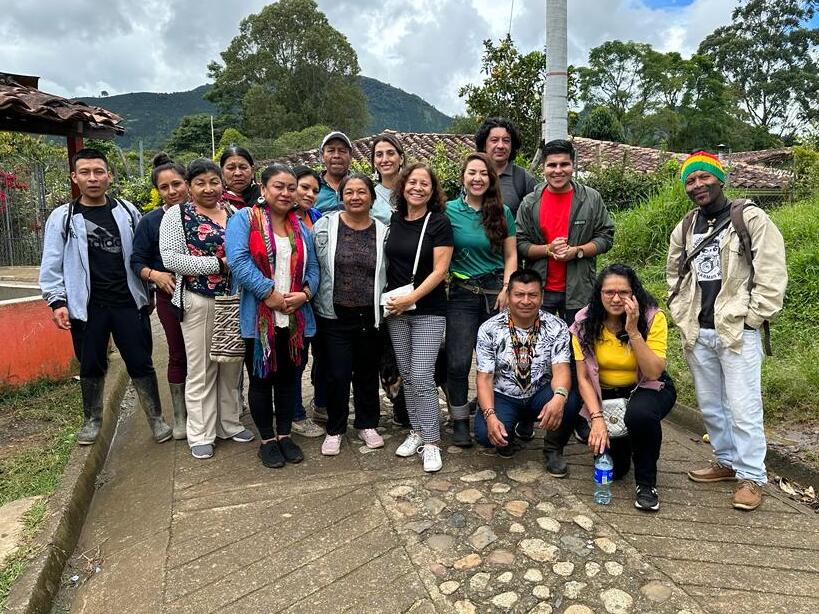
Written by: Alejandra Lopez Ramirez
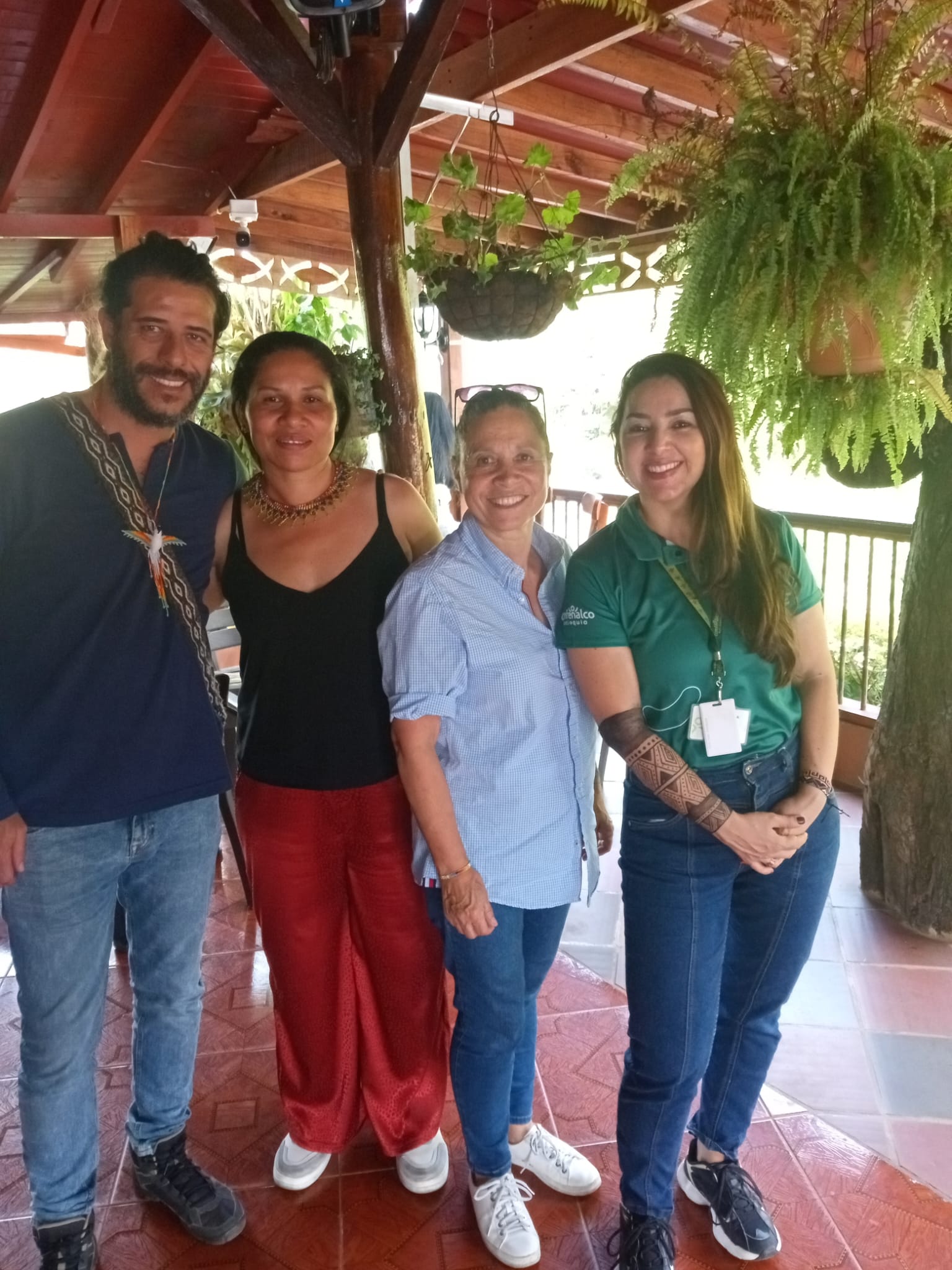
Alejandro Muñóz (Tourism Coordinator of Comfenalco Antioquia), Luz Emilse Panchi (Governor of the Indígenous Reserve Karmata Rúa), Emperatriz González (Catalyste+ advisor) and Paola Idarraga (Technical Innovation Manager of Comfenalco Antioquia).
Amidst the mountains of Antioquia, 130 km from Medellín, in the municipality of Jardín, the Embera Chamí Indigenous community of the Karmata Rúa Reserve has taken a significant step towards sustainability. In December 2023, during a two-week assignment, Catalyste+ Advisor (CA) Emperatriz Gonzalez, carried out a diagnosis about waste management in the community and an action plan to address shortcomings related to the implementation of good practices in waste management in tourist areas. As a result of the recommendations, the community has successfully implemented new waste management practices that are now transforming their environment and supporting their tourism project.
The training was part of an exploratory project to develop the first Ethno-tourist Route of Southwestern Antioquia, and it provided community members with sustainable solutions for managing waste, water, and composting. This initiative, led by Comfenalco Antioquia (Catalyste+ partner in Colombia), a family benefit fund, which is an institution in charge of providing social services and well-being to their members and the community; and supported by the Vice Ministry of Tourism, and the University of Antioquia, aims to establish community-led tourism while preserving cultural and natural heritage.
“The community has made efforts for several years in favor of environmental sustainability and adequate waste management, but there is still a need for greater awareness and sanctions for those who do not comply. A waste management team is urgently needed to reinforce environmental education, organize waste collection and establish better collection points. In addition, frequent disposal of unusable waste must be guaranteed to prevent its accumulation”, said Emperatriz after finishing the assignment.
Although the community still has a lot of work ahead, the results are noteworthy, even after one year. Waste accumulation along key points of the tourism route has been significantly reduced, and community-led clean-up efforts have become a regular practice. The project has also fostered gender-inclusive leadership, with women playing a central role in waste management and environmental education. A local nursery, led by the Women’s Association, now serves as a meeting point for children and youth to discuss sustainability and plan initiatives such as reforestation and eco-friendly tourism practices.
“Women have taken on leadership roles in spreading sustainable practices. Their commitment has been key to keeping the area clean and reinforcing environmental awareness across generations,” said Paola Idárraga, Innovation Coordinator at Comfenalco Antioquia.
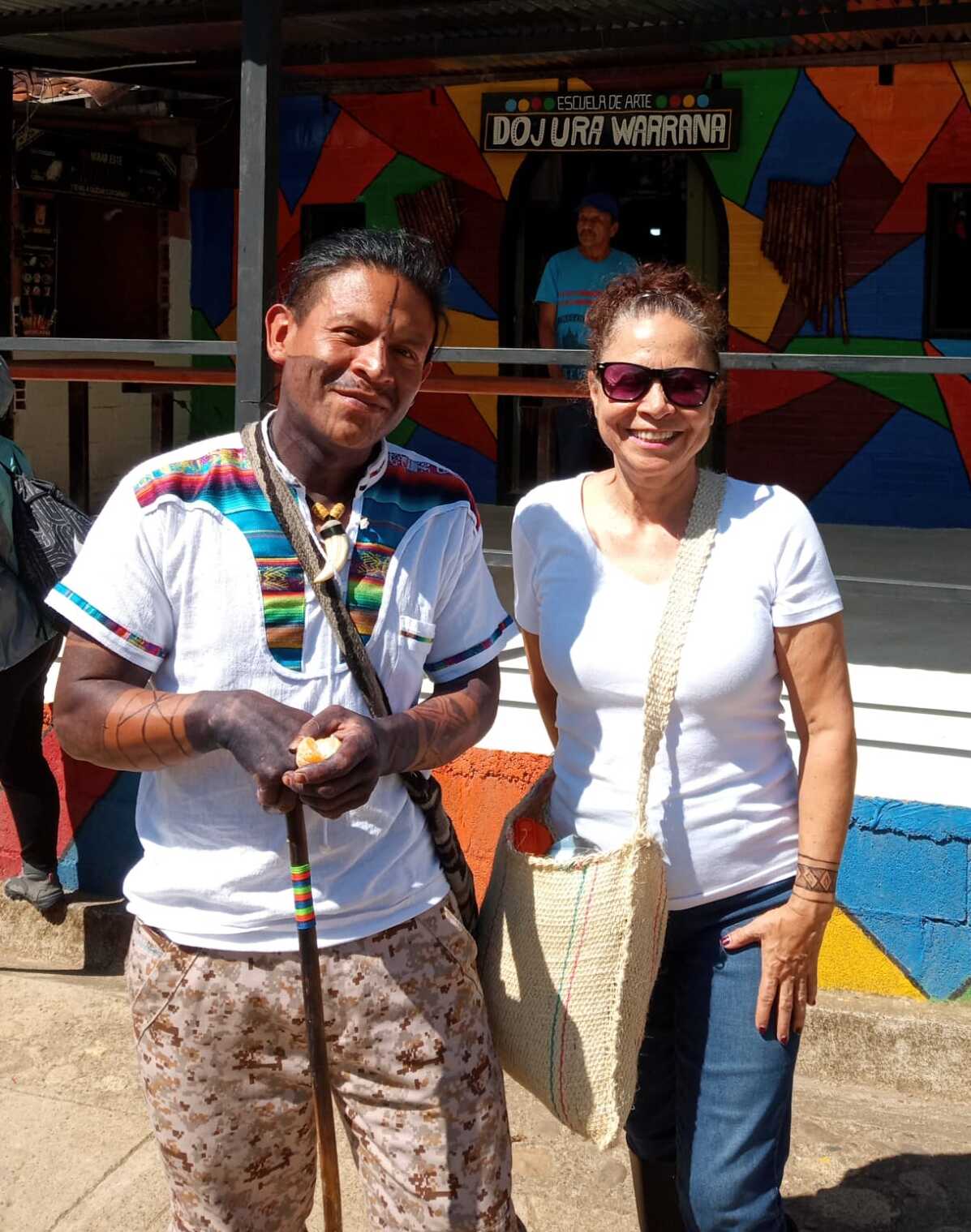
James Tascón and Emperatriz González
These efforts led to the community being awarded the Sustainability Recognition in the Differential Category by the CORANTIOQUIA Environmental Corporation. This certification acknowledges organizations and ethnic groups that stand out in environmental management.
Beyond environmental impact, the initiative is also enhancing economic opportunities. By improving waste management and reducing pollution, the tourism industry has been elevated, attracting more visitors who appreciate the region’s cleaner, well-preserved landscapes. This, in turn, has generated new income streams for the community, benefitting both men and women.
“Sustainability isn’t just about the environment—it’s about creating opportunities. With cleaner spaces, we’re seeing a positive impact on tourism and the community’s well-being,” said Alejandro Muñoz Garcés, Tourism Coordinator at Comfenalco Antioquia.
Looking ahead, the Embera Chamí community continues to expand its sustainability efforts. Plans are underway to develop agroecological practices, a seed museum, and an aquaponics farm—initiatives that will further strengthen food security and environmental preservation. The collaboration with Catalyste+ has not only transformed waste management, but has also empowered the community to become a model for responsible, community-driven tourism in the region.
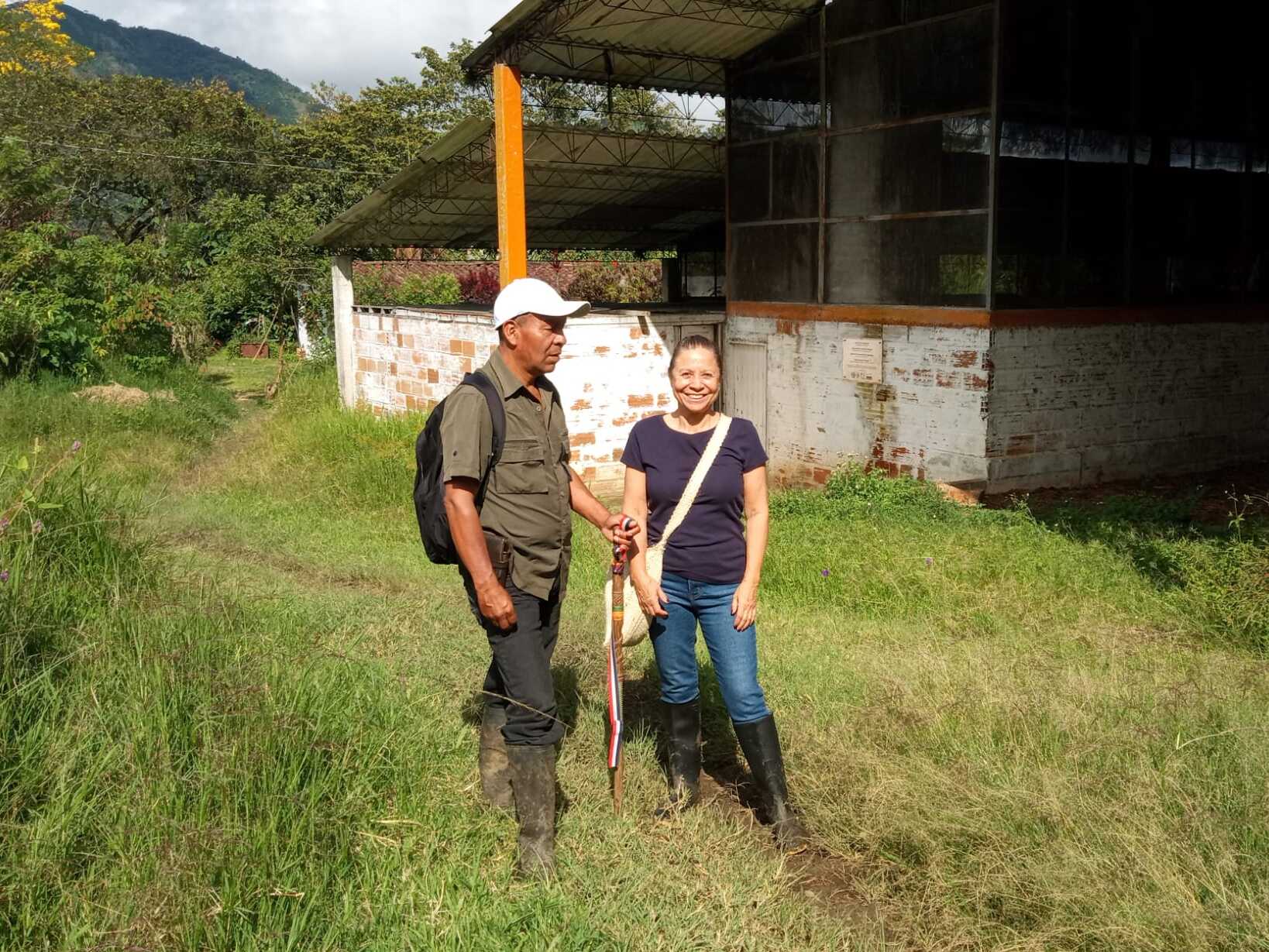
Norberto Tascón and Emperatriz González
